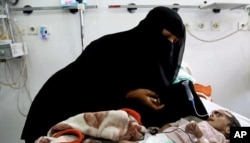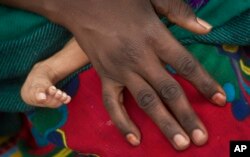Less than $5 a year per person can save four million lives a year, according to Johns Hopkins University researchers.
Six researchers from Johns Hopkins, led by Dr. Robert Black, spent a year and a half studying health problems and needs in the world’s poorest countries.
Providing basic health care
They found that in 2015, pregnancy and birth complications resulted in the deaths of more than five million children and 300,000 women, 95 percent of the global population’s maternal and child deaths.
The researchers focused on expanding access to specific basic care services, which would not only save the millions of lives lost, but cost roughly $4.70 per patient per year to do so.
Black’s team created three health care packages that contain conditions and services relative to reproductive health, maternal health, newborn and child health and nutrition.
The packages include 66 health care treatments that fit in with how countries organize services like management of pregnancy and immediate care of a newborn, treating pneumonia, vaccines.Within each package, the team then selected particular services that were most effective and have the largest benefit.
“We don’t build hospitals, sophisticated care units or diagnostic facilities for that amount of money,” said Dr. Black. But the study showed there are very affordable cost effective interventions that could be put in place now, with very limited additional resources.
“We’re not claiming that we’ll prevent every death, but we’ll prevent more than half of the deaths and we’re talking about $5 per person in the countries that are affected,” Black clarified.
Prevention, implementation
The study shows that if 90 percent of the target population were provided with these services, it would prevent about 1.5 million newborn deaths, 1.5 child deaths, and nearly one million stillbirths and maternal fatalities.
The services also includes improving access to contraceptives and reducing death rates by meeting the demand for family planning, which, alone, would decrease maternal deaths by 67,000.
After the research was published, Black joined a Countdown to 2030 meeting.The initiative is an expansion of Countdown to 2015, a collective effort of many organizations, governments, U.N. agencies and health care associations aiming to accelerate the reduction of child mortality rates and improve maternal health, while tracking progress.
“What we’re talking about is how to take the work forward in The Countdown,” said Dr. Black.
The 2005 U.N. goal was to cut the number of deaths by two-thirds by 2015, but while the numbers decreased, the goal was not met.
The study was sponsored by the Bill & Melinda Gates foundation, which Black, commends for its dedication to helping improve the lives of others.
“From the foundation there is a very strong commitment, but I hope it carries over to the countries themselves to sustain the work or to build on it, and to other funding agencies as well,” said Black.
The periodical Lancet published the study and it was also presented at the Consortium of Universities for Global Health conference in San Francisco on April 09.






